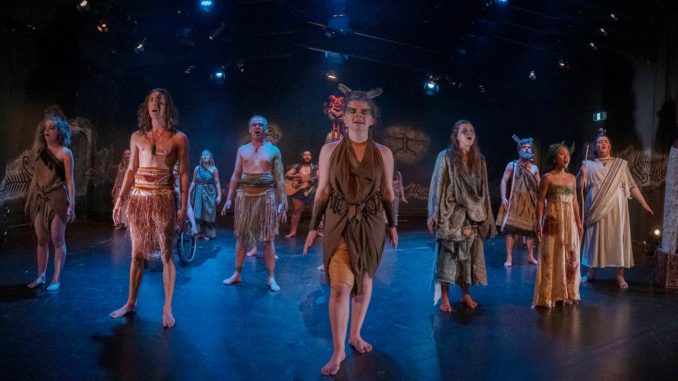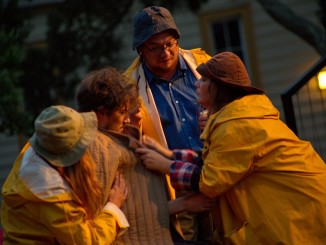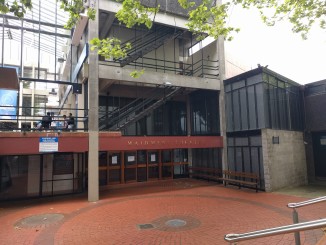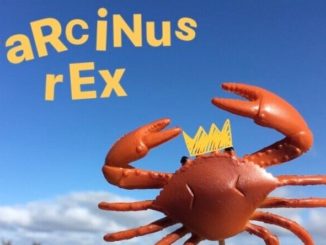
In this guest post, Murray Edmond reports on three recent student productions in Auckland and wonders what rules apply when we think about student work.
Peer Gynt, by Henrik Ibsen, a version by Colin Teevan, University of Auckland 2nd year drama production, directed by Sara Brodie, at The Drama Studio, University of Auckland, 19-22 Sept. 2019.
Animal, by Arlo Green, an adaptation and extension of George Orwell’s Animal Farm, Stray Theatre Company, directed by Harriett Maire and Arlo Green, at the Basement Theatre, Auckland, 22-26 Oct. 2019.
Te Pakkhai, bi-lingual version of Euripides’ The Bacchae, Māori text by Charles Royal, English David Grieg, Unitec 3rd year acting graduation show, directed by John Davies, Teiaro Taikato and Ariana Williams, at Unitec Theatre, Auckland, 8-16 Nov. 2019.
It’s nice to have retired from teaching tertiary drama students (no more production stress), nevertheless, speaking as a curmudgeonly old boomer, there are things I deeply miss – all that energy, intelligence and willingness to push boundaries. The ‘quality’ of student drama can be a reviewer’s easy excuse. (The quality of professional drama can be more baffling.) Under Communist rule in Poland there were the regulation state-funded theatres in each town, which were subjected to invasive and meticulous censorship. But there was another category of theatre that was permitted that was called Student Theatre and membership of this category meant one was not subject to the same degree of scrutiny and political control. At least one of these Student Theatres from the 1970s still exists: Teatr Osmego Dnia, the Theatre of the Eighth Day, with several of its original members, is still domiciled in Poznan, though it performs far and wide. In 1975 the New Zealand company Amamus, with their show Gallipoli, attended the Festival of Open Theatre in Wroclaw, Poland, which was designated an International Student Festival. Later in the early 1980s, ex-Amamus director Paul Maunder called a company he founded The Theatre of the Eighth Day. The Polish poet Konstanty Ildefons Galczynski was the one who had declared that “On the eighth day, God created theatre.” His idea must have been that from that moment when humans started making their own creations, their own wretched imitations and representations, the stone started rolling back down the hill and the waka began slowly sinking.
And God began to understand the meaning of that emotion called regret. Which led humans to inquire, “But who is God?”
Over three months in September, October and November 2019, I have been to see three student theatre productions in Auckland in which that question of “Who is God?” received a rousing and passionate theatrical response: Ibsen’s Peer Gynt in a version by Colin Teevan from Auckland University drama students; Arlo Green’s ‘re-write’ of Orwell’s Animal Farm, titled Animal from the Auckland University student theatre club called Stray Theatre Company; and a Māori/English rendering of Euripides’ Bacchae, titled Te Pakkhai, from third-year graduating Unitec acting students. I’m writing about these productions now because my experience as an audience member was a heartening one. When Peer tears the onion apart to find what is hidden at its heart and finds there’s nothing there, only layers with nothing inside, we know we are watching the first modern European play. “Nature is witty,” says Peer. God’s big fat joke turns out to be there is no big fat God. In Animal Farm the order of that universe has placed Mr Jones at its head: Jones is God. With a God like that, who needs one? So, the animals overthrow him – and out of that revolution the path leads onwards until the pigs appoint themselves as the new God. The satire points two ways – either that it’s not possible to live without God or that God is a misery you inflict upon yourselves when you really don’t need to. You’re either a fool or a knave depending on which you choose. Those ancient Greeks even had a God of Theatre, one Dionysus, and Euripides’ play The Bacchae is his play. It’s a play that hunts absences, as if God isn’t quite as obvious as you might think. Just like deluded young Pentheus, we in the audience never get to see what those women on the mountain get up to. And we never see how much Agave loves her son Pentheus until she’s cradling just his head in her arms (and by then, of course, Pentheus is not there). And Dionysus himself refuses to manifest on stage as the God he is. Instead he ponces around as a gorgeous young man. Only at the very end of the play, when all the destruction and ruin has been wrought, does he appear to tell us that he runs everything, the whole show – he is, after all, the God of Theatre.
Who rules? Who makes up ‘the rules’? These questions are always lurking for the critic. And when it comes to student theatre, we have to ask, do the rules apply to student theatre?
Peer Gynt is a young rule-breaker’s play. Peer is told he should be true to himself, but those enticing Trolls offer him something else, that phrase so difficult to translate from the Norwegian, but not for Kiwis, who know that “she’ll be right” always and only ever meant “she’ll be right.” Peer sets out on a life of no-limits and what-the-fuck. And wouldn’t we all! Peer shines in our eyes when we watch him in full cry – Jesus, Peer, what makes you think you can do that? As Sara Brodie’s directorial notes in the programme read: “I certainly felt Peer’s desire to run away and conquer the world.” The second-year Auckland University Drama students did not hold back. Under Brodie’s inspirational direction, the 31 students provided assistant directing, stage management, dramaturgy, lighting design and operation, set design, sound design and music, costumes, props, choreography and publicity, as well as all of them taking a part in the performance (lighting operators left the booth in shifts to play their parts on stage!). Seven actors, of varying gender, played Peer, corresponding with the five acts of this massive ramble of a play. Brodie wrote also that this was her “all time favourite of plays” – not of Ibsen’s plays, but of all plays! It’s a play that can fall flat. It requires bacon-actors, not egg-actors to produce the goods – just as pigs die for their product, but chickens walk away more-or-less unscathed. And the University student cast understood exactly that. A loose and open traverse staging in the University’s Drama Studio allowed action close to the audience, gross comedy, melodramatic emotion, everything blessedly over-the-top (as that silly old English phrase goes) as is appropriate to a fantastical play about a fantasy – the self. No, Peer, you are not God, and I could see that every student performer understood that in their bones. This time we really did see the play.
Since the executive management of the University of Auckland demolished its only performance facility under the feeble excuse that the Maidment Theatre was an earthquake risk (every working theatre in Wellington is at much greater risk), the hole in the ground left behind these past four years doesn’t serve those students who run their own AUSA-affiliated theatre club. Stray Theatre is forced to seek out venues to hire in the city – a disgraceful situation. Lucky that The Basement for the first time has programmed the company. And lucky for those who were able to catch a performance of Animal, because its six-show season was sold out before opening night. In the spirit of Peer (but with far more intelligence), directors Harriett Maire and Arlo Green wrote in their programme notes: “We dreamed big.” Understanding what they had taken on, they went on to say, “This is a development season of an extremely ambitious project.” And then, with charming modesty, “Forgive us.” This modesty got out of hand when the author – Arlo Green – was unwilling to be attributed for his work. A pity, because the writing was a real strength of the work. A man comes on stage with a fishing line and a copy of Animal Farm. “What did you think [of the novel]?” he asks us. He casts his line. He catches a big fish (actor in fish mask). She lands up in stage, unhooks herself and looks around. “So, this is land! I’d like to look around.” We are not just in Orwell’s world of animals and so-called humans (mere animals of course), but also in our present ecological mess, the big fuck-up for which, yes, us boomers among others hold major responsibility. With a cast of 22 and a production team of 24 (no doubling roles), all crammed into the upstairs space at the Basement (no room to swing a child – sorry, swing a cat), the teamwork and the performance commitment was astonishing. Arlo Green’s script hauled Orwell’s satire into the universe of climate change, but it also faced us with the political dilemma of here-and-now: what are you going to do about a world where some people are designated as ‘animals’ (“the very instant our usefulness has come to an end we are slaughtered”) and some are called ‘humans’ (“their sole wish was to live at peace and in normal business relations”). The play confronted us with this terrifying prospect – and here, as with Peer Gynt, one felt that every performer understood the stakes and their responsibility as a performer. The Directors’ notes read: “This is what we call pop-theatre. We’ve tried to combine a superhero story inside a famous 20th century novella. You be the judge.” They asked the audience to play God, and, in my role, I said yes, this moves me and it makes me think with chilling intensity. I feel that pain of being God.
“I have undertaken this project because I believe,” John Davies writes in his programme notes for Te Pakkhai. Euripides’ original play has been transported to the Aotearoa/New Zealand identity crisis: “Being of New Zealand but perhaps not totally of Aotearoa is a reality our nation struggles with every day but the struggle is our reality.” And then later, Davies concludes: “Perhaps we can only hope for divine intervention.” God is back – and in the case of The Bacchae – with a vengeance. The play asks: will we tear ourselves apart with our own lack of faith? This was John Davies’ farewell production at Unitec after teaching there for the past ten years. It grew from an idea conceived four years ago. It was made from meticulous planning and careful consultation. Unlike with Peer Gynt and Animal, Te Pakkhai had extensive input from professionals, the Unitec teaching staff, but many from outside the school too. The choreographed end-on staging on a symmetrical stage with large figures representing carved pou lent a formal grandeur to the ragged, self-destructive desires and delusions of the mortals and the calm ironies of the God and his entranced followers. Extensive use of waiata and kanikani enhanced the formality in a way that linked back to the song-and dance auditorium of the Theatre of Dionysus in fifth-century Athens. Because of the ancient text’s inherent ambiguities, the play lends itself happily to a twist in this or that direction. In this case the twist was towards “healing bloodlines between Māori and non-Māori” (Teiaro Taokato and Ariana Williams’ programme notes). Yet again, the total commitment and understanding of the cast was evident. One could see that not only the Director believed, but the cast believed too. The constant passaging from Te Reo Māori to Te Reo Ingarihi was achieved with impressive seamlessness. In this way the performance achieved itself, brought its aims kanohi ki kanohi with us in the audience. And, also once again, the large cast (18 actors) backed by a production team of well over 20, granted us in the audience the combined pleasures of many voices and many bodies, a feature of all three of these pieces of student drama.
It is very difficult for any professional theatre without vast resources to fill a stage and a room as these three shows did. Perhaps this is the given of ‘Student Drama.’ The critic is then free to pick apart the obvious weaknesses of this situation. The rules say that there should be aesthetic coherence, but here every actor (those who could act, that is!) looked like they were in their own play. But in the case of each of these three productions, more than the opposite applied. Something beyond the desired ‘aesthetic coherence’ – a sense in each cast that that responsibility that goes with any production was being carried by each paddler on their respective waka. There’s something quite special about this. It truly is ‘student drama’ – we are watching those who have learned, and, as we do, we are learning.
Murray Edmond: He was born in Hamilton in 1949. Author and editor of 20 books of fiction, poetry, criticism and anthologies. Editor of on-line journal, Ka Mate Ka Ora: A New Zealand Journal of Poetry and Poetics and dramaturge for Indian Ink Theatre Company. Ran the Drama programmes at the University of Auckland from 1990 to 2014. For reasons “unknown or unknowable” still continues to write, with distant and bracing prospect of Waikumete Cemetery in view.




Leave a Reply